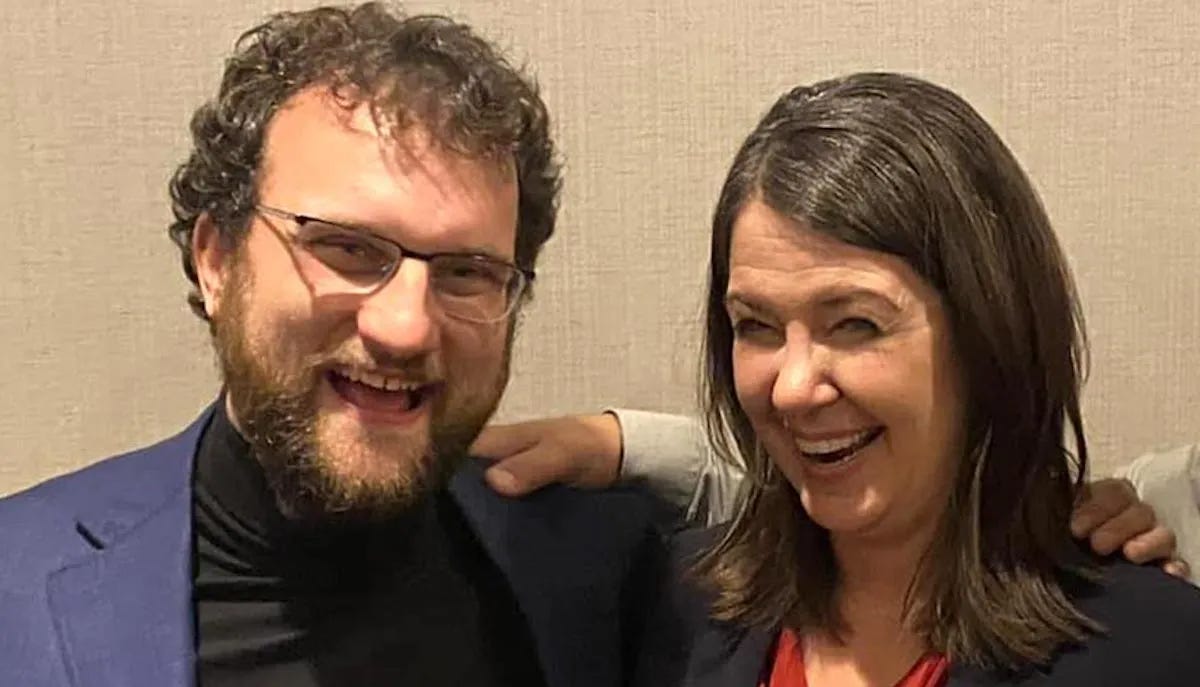Supporters of public education need to mobilize against destructive forces
A look at some of the shadowy actors aiming to undermine Alberta public school boards from within.

A version of this piece was originally published in ATA News.
A loose coalition of hard-right organizations is mobilizing in advance of the 2025 municipal elections with the explicit aim of electing trustees who oppose 2SLGBTQ+ inclusion policies, posing a clear danger to one of the core tenets of public education — creating a safe and caring environment for all students.
Chief among these groups is Take Back Alberta (TBA), whose homeschooled founder David Parker sure has a lot of opinions about the public education system, based on YouTube videos and social media postings.
Parker told a November 2023 meeting with like-minded ideologues, dubbed “Conservatizing Municipal Councils and School Boards,” that he is “focused 100 per cent from now until the municipal elections on school boards.”
This isn’t entirely true, given his organization’s role in efforts to remove Calgary mayor Jyoti Gondek from power and his personal contribution to a thinly veiled campaign to have Cochrane’s entire town council ousted. But the threat to public education is clear.
For Parker, schools have been captured by a “tyranny of the rainbow guard and the green guard,” referring to children being taught about 2SLGBTQ+ people and climate change. Parker’s invocation of Mao Zedong’s Red Guard is deliberate. To him, this is all part of a Communist conspiracy.
“They’re constantly changing what they believe, because what they actually believe in is a continuous revolution,” Parker said of his political opponents. “Anything normal must be queered. That’s really the philosophy behind this new form of communism. It’s called queer theory.”
He appears to believe that trustees have the ability to “begin firing the people that are pushing this ideology and hiring the people who aren't,” oblivious to the reality that school boards only have one employee — the superintendent. Parker’s efforts to impose his ideology on school boards — under the guise of removing ideology — is a good indication of why that’s the case.
Who’s behind Parker’s organization, which controls more than half of the governing United Conservative Party’s board of directors? We don’t know, because he’s refusing to comply with an Elections Alberta investigation into TBA’s activities surrounding the 2023 provincial election, which includes allegations of colluding with the UCP, misappropriating funds and engaging in illegal, undisclosed election advertising.
While Parker purports to lead a “grassroots movement,” we have no way of knowing whether that’s just astroturf.
At the November 2023 online event at which Parker spoke, were two other organizations that supporters of inclusive public education ought to keep their eyes on, given these groups’ exclusive focus on dismantling it — the Alberta Parents’ Union (APU) and Parents for Choice in Education (PCE).
At the top of its website, the APU says it’s dedicated to “advocating for the best possible education for all Alberta students — whether that be public, separate, francophone, alternative, charter, independent, or home education.” Blurring the distinction between public and private education, of which Alberta is a Canadian leader, is problematic on its own, but it takes little digging to see APU goes far beyond that.
“‘Private’ is the pejorative term the left uses for independent schools, while simultaneously complaining that they receive public money,” reads a March 20 news bulletin on the group’s website, which also references the “senseless and heartless cap” on charter schools that existed from 1994 to 2020.
The article applauds Danielle Smith’s government for enhancing “market competition” in education by increasing funding for private schools by 13.5 per cent, compared to 4.4 per cent for public schools, which the unnamed author says somehow “reveals the correct price” of education.
But marketization isn’t the only ideological factor at play. The APU wants public school teachers to be “explicitly banned” from discussing issues such as Critical Race Theory, climate change, 2SLGBTQ+ issues, and the Jan. 6 Capitol Riot, according to an asinine November 2023 Taber Times editorial that called on educators to “compromise” with the APU “for the kids.”
Founded in 2022, the APU isn’t registered as a non-profit, nor is it a charity.
PCE is a much more long standing opponent of public education, having registered as a non-profit in 2012.
Under the guise of “parental choice,” PCE, like the APU, advocates for the government to direct resources away from the public education system, thus limiting the programming options available to students in the public school system.
But there are clear limits to the parental choice PCE envisions. PCE executive director John Hilton-O’Brien called the suite of anti-trans policies Premier Smith announced in February, which includes a prohibition on children under the age of 16 taking puberty blockers for the purpose of gender affirmation, even if their parents consent, “better than expected.”
These are just three major players intent on infiltrating school boards to undermine public education from within. Smith’s impending legislation to allow municipal political parties will only make it easier for these groups to coordinate and mobilize their supporters, representing another gift to education privatization proponents.
That’s the bad news. The good news is that, with the civic election period beginning next year, supporters of public education still have time to mobilize against this assault and protect our most vulnerable students.




Interesting Smith and APU and PCU want “ private” schools to make their own rules and teach their own curricula but get provincial funding.
If they want a private school, they need to (100%) fund it privately.